Written by Sahila Kudalkar
Wildlife trade in the Indian scenario can be divided into three categories as defined by the Foreign Trade (Development and Regulation) Act, 1992:
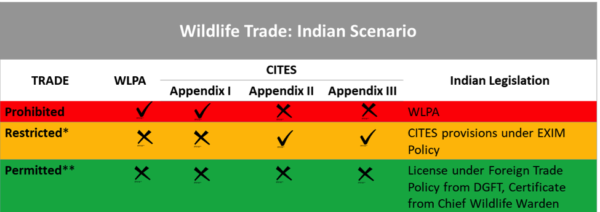
Some notable aspects of India’s export-import policy for wildlife trade are as follows:
Wildlife Exports

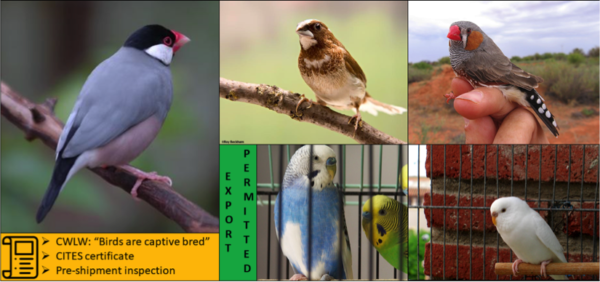
No wildlife other than six birds is permitted to be exported. These include (L to R) Bengal Finch, Zebra Finch, Budgeriar, Albino Budgeriar, White Finch (not depicted) and Javan Sparrow (restricted export)
Wildlife Imports
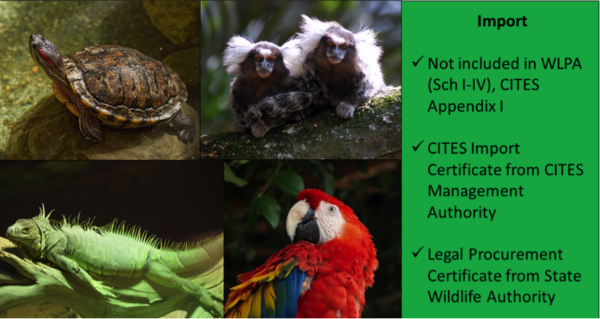
In layman terms, this translates to:
You can not import/export/possess any ‘wild animals’, as defined under the WLPA
You can not export exotic birds except for 6 bird species
You can export exotic reptiles and mammals provided they are not covered under WLPA and follow the provisions under CITES
Popular exotic pets such as parrots, macaws, and cockatoos, falcons, red-eared slider turtles, etc. can be imported provided the importer has an LPC and CITES Import Certificate, and follows the EXIM policy
Finally, what impact does the uplisting of Indian species such as the Indian star tortoise, tokay gecko, otters etc. have for wildlife trafficking in India and internationally?
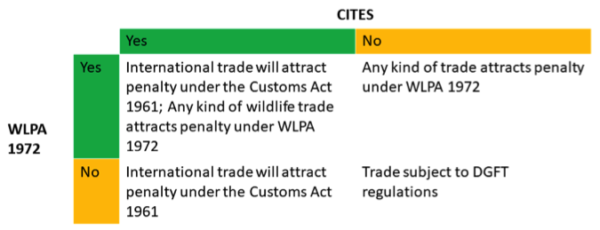

© Wikimedia Commons
Exporting a Tokay gecko (previously unlisted, but included in Schedule IV of the WLPA) will now require certificates from both CITES MA and DGFT. However, given that much of the trade in the species is illegal, smuggling will continue to be penalized under both the WLPA and Customs Act. Notably, however, seizure of Tokay geckos in a CITES signatory nation will allow for the species to be re-exported and rehabilitated back in India.

© Wikimedia Commons
Smuggling of otter skins/Indian star tortoises will continue to be penalized under the WLPA and the Customs Act. However, the listing of otters and Indian star tortoise into Appendix I has implications beyond India – especially where illegal goods are passed off as legal. The entry of wild-sourced wildlife and their products under the aegis of ‘captive bred’ and ‘farmed’ internationally is now subject to greater checks with the banning of virtually all trade in the two otter species.
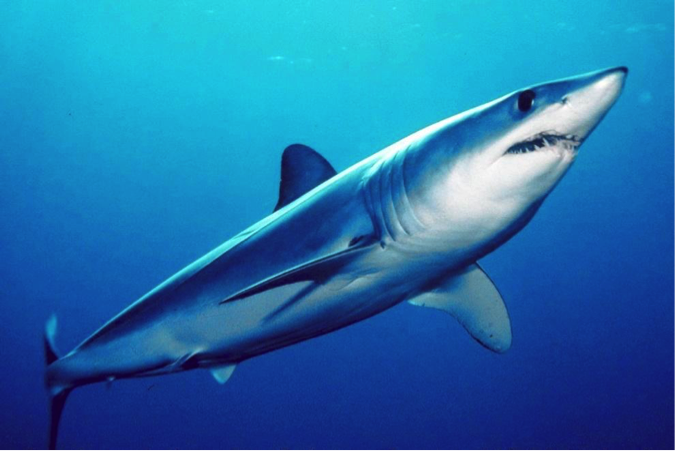
© Wikimedia Commons
Species that are not in the schedules of the WLPA such as the guitarfish, wedge fish and the shortfin and longfin Mako sharks, but are now included in CITES Appendix II will be subject to provisions under the Foreign Trade (Development and Regulation) Act 2002. Attempts to trade in the species or their parts (eg. fins) across Indian borders without appropriate documentation will result in a penalty under the Customs Act.